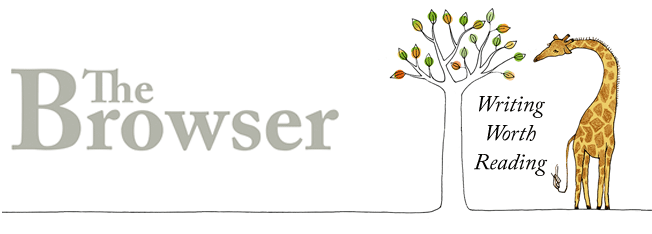The Browser shows why real curation is worth subscribing to

Robert Cottrell has worked as an editor with the Economist and the Financial Times. Since 2008 he is a professional curator. 7200 people subscribe to his daily recommendations what is worth reading on the web. A yearly subscription to The Browser costs you 20 USD – and it’s worth more than that from my experience. Thanks to Robert I saw and read articles I enjoyed very much (like Nature’s analysis of the 100 most-cited research papers of all time) but did not see recommended in my filter bubbles on Twitter or Facebook. Cottrell answered my question on The Browser:
What is the Browser and what makes it special?
On The Browser I try to recommend five or six pieces of writing each day which I think are of immediate interest and of lasting value. I guess what makes The Browser special is this very personal approach. When I read something, I always think to myself: Would I recommend this piece to a friend or a colleague? It’s the absolute opposite of the algorithmic approach. The Browser is one person’s sensibility.
Did this develop from what is was about when you started?
The Browser is still very much the same as it was when I launched it in 2008. The main difference is that, six years ago, almost all mainstream media was publishing content free online. Now almost all mainstream media sites have metered paywalls. I strongly prefer to recommend pieces which are not paywalled, so I have to work harder and read more widely to find writing which is both excellent and undated.
How does your typical workday look like making the Browser?
I need about five or six hours a day to do the reading for a typical day’s Browser, Monday to Friday. I also try to do the equivalent of one day’s work over Saturday-Sunday. I have two small children, so they have first claim on my time in the morning and late afternoon. I do The Browser in the middle of the day, from 9am until 3pm, and finish it in the late evening if necessary.
How many people earn a living from the Browser today (and how did this change over the years)?
There are two of us working on The Browser. I do the editorial content. Duncan Brown is the publisher, and Duncan takes charge of everything else — business development, tech, support, marketing. We are equal partners in the business. We pay ourselves very little, which allows The Browser to break even financially. As of today We have 7,200 subscribers at $20 a year. If we can increase the number of subscribers we will pay ourselves a bit more.
Thinking about your reader / subscriber: Who is he/she in your mind?
I used to work as a journalist for The Economist and the Financial Times for many years; that has shaped my sensibility, and when I think of the Browser reader, I imagine somebody who might also read The Economist, and the Financial Times, and Foreign Affairs, and the New Yorker, but who also likes to have content suggested from other sources. In practice, I know from my mailbag that we have a lot of readers in the media, and academia, and government. According to Google Analytics slightly more than half of The Browser’s readers are in North America, although Duncan and I are in London. We focus on English-language media because that’s where my competence lies as a reader, but I’m conscious that this means missing out on a lot of fine writing that’s not published in English, so I’m especially thrilled to recommend pieces from sites that translate into English — Spiegel, most obviously, and also Eurozine.
What should more people know?
We’ve launched a companion website called The Browser Looks Back which recommends the best writing from 100 years ago. We’re working now on a platform which will allow readers to buy single articles from paywalled websites, which should be ready in Spring 2015.


